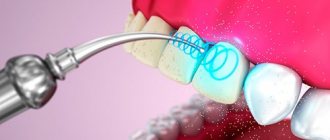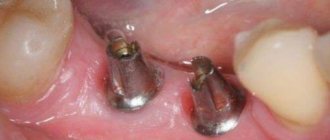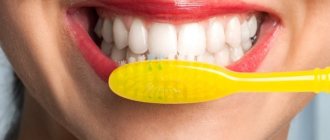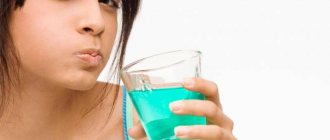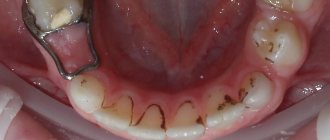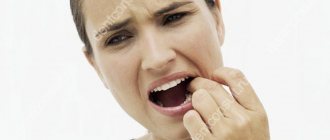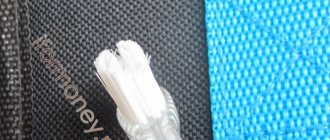Contrary to the popular belief that pregnancy is a beauty for any woman, for most, bearing a child and the process of childbirth itself usually causes an exacerbation of various chronic diseases. Teeth after childbirth and their pathologies are among the five most common problems among nursing mothers.
Various diseases of the oral cavity during breastfeeding not only cause concern for mothers, but also affect the health of the baby. If, as a result of discomfort in the mouth, a woman’s appetite decreases, then the level of breast milk production also decreases, which cannot but affect the condition of the child.
Causes of dental problems after childbirth
Everything in the female body is interconnected, so oral pathology occurs in most women already in the first months of pregnancy. Among changes in a woman’s hormonal and immune levels that lead to disturbances in the physiological structure of the teeth, doctors consider the following factors to be the main ones:
- Intrauterine growth of a baby usually leads to a direct malfunction of the immune system of the expectant mother, including disturbances in the chemical composition of saliva. Under normal conditions, special substances contained in saliva block the harmful effects of active food factors on tooth enamel, but during pregnancy this natural protection of the oral cavity is sharply reduced.
- A major role in the occurrence of such a dental problem in a young mother is played by the lack of calcium in the woman’s blood washing the oral cavity. This microelement is almost completely removed from the pregnant woman’s body to strengthen the bones of the unborn baby. This mechanism of transferring nutrients to the child reaches its peak from 20 to 30 weeks of pregnancy.
- When teeth crumble after childbirth, women should remember the toxicosis that accompanied her throughout pregnancy. This process not only enhances the excretion of beneficial microelements from the expectant mother’s body, but also affects the woman’s appetite. Constant vomiting and weakness do not contribute to a normal diet; the pregnant woman begins to limit herself in food, which aggravates the lack of calcium in the blood.
- A fairly common problem that expectant mothers face is inflammation of the oral cavity or gingivitis. Given the low immune level in such patients, the infection instantly affects the gums and causes the development of an inflammatory disease - periodontitis. With this disease, young girls' teeth begin to loosen and fall out.
- Hormonal changes in the body of pregnant women lead to a decrease in the thickness and density of the protective layer of teeth. The enamel covering them becomes a weak barrier to various infections. Such pathological conditions of the expectant mother’s oral cavity often cause toothache after childbirth.
We recommend reading the article about vitamins after childbirth. From it you will learn about the importance of taking vitamins during lactation, essential substances and microelements, as well as natural sources of vitamins.
Most problems with the oral cavity and teeth in young mothers begin long before the birth itself, however, even after the birth of the baby, this pathological condition continues to disturb the woman. For normal development, a baby requires a large amount of calcium, which can only enter his body with mother’s milk.
Of course, such a transfer of useful substances and microelements into the child’s blood does not pass without leaving a trace, and dental problems only intensify. To prevent them, experts recommend that women immediately after discharge from the maternity hospital visit a dentist and get advice on proper sanitation of the oral cavity.
Smoking before pregnancy
Some women have a bad habit before pregnancy - smoking.
Then the consequences of smoking in the mouth must be urgently treated. What are the disadvantages of the lady smoking before she became “interesting”? There are more than enough of them. People who smoke have an increased temperature in their mouth. Because of this, the protective functions of saliva are reduced and the number of microbes increases. As a result, a soft plaque forms, then over time it hardens, forming stones. Smokers do not have enough vitamin C. After all, it is consumed to reduce the effects of nicotine on the body. A lack of vitamin C leads to diseases such as gingivitis and periodontitis. Before carrying a child, patients may not complain, but during the period of hormonal changes, with improper hygienic procedures, the following may occur:
- the appearance of plaque;
- increased sensitivity;
- bleeding and inflammation of the gums.
Read also No period after childbirth for 2, 4, 5, 6, 7, 8, 9 months or longer
A pregnant woman who has smoked undergoes professional cleaning and preventive measures using special equipment. Due to a lack of minerals, white spots appear on the enamel. In such a situation, appropriate therapy is prescribed to enrich the enamel with fluoride and calcium.
How can a dentist help young mothers?
Many women after childbirth do not pay due attention to the condition of their teeth. Most often this comes from an elementary feeling of fear of physical pain, but many women consider this problem not particularly relevant.
Typically, nursing mothers go to the doctor when they notice that their teeth are decaying after childbirth. A similar process in the oral cavity leads to disruption of a woman’s normal nutrition during lactation, which cannot but affect the baby’s health.
Doctors at the antenatal clinic recommend that women visit the dentist at least 3-4 times a year during breastfeeding, even if there are no complaints about the condition of the teeth and gums. The first visit to the doctor should be already in the first month after birth.
The specialist will assess the condition of the oral cavity, advise the woman on a specialized toothpaste, and give recommendations on cleaning the enamel and strengthening the teeth. Usually, the main problem during this period of a young mother’s life is the lack of minerals entering the oral cavity.
To prevent pathology, modern dentistry has in its arsenal special techniques using fluoride, calcium and magnesium. This method of treating enamel will reduce its destruction and reduce the level of pain irritation.
Sensitive teeth after childbirth are one of the main reasons for visiting the dentist. The young mother is forced to deny herself regular dishes. The usual temperature and mechanical conditions become an irritant for a woman.
The main reason for this pathology is exposure of the root. The enamel is exposed to external factors, the density of the tooth coating decreases due to calcium leaching, and the nerve endings come out. Experts recommend special toothpastes for this group of patients. Typically, such medications are applied to the teeth and gums immediately after cleaning for 30 minutes.
In medical universities, dentistry is a separate department. And this division was not done in vain. Oral diseases are considered a very serious problem; specialists treat them with due care.
Bad breath
Breastfeeding women often experience bad breath. It causes diseases of the gastrointestinal tract, accumulation of bacteria, and liver dysfunction.
Causes of bad breath:
- improper and irregular care;
- indigestion, gastrointestinal diseases;
- pancreatic diseases;
- colitis, enteritis;
- gingivitis;
- diabetes.
If a symptom such as bad breath is present, treatment is prescribed by a dentist or therapist, depending on the cause. For diagnosis, blood and urine tests, oral x-rays and hygiene assessment are prescribed.
What to do if you have bad breath after childbirth:
- brush your teeth daily morning and evening;
- use natural chewing gum, threads or rinses after each meal;
- take a vitamin-mineral complex;
- review your diet. Eliminate harmful foods, soda;
- start treatment in a timely manner if the odor is caused by a disease of the gastrointestinal tract, liver or thyroid gland;
- use antiseptic mouth rinses. They prevent the proliferation of harmful bacteria.
To eliminate odor, thyme tincture is used. The course of treatment is 2 weeks. To prepare it, 1 tbsp. l. The plants are poured into glasses of boiling water and left for half an hour.
Hygiene rules:
- Dental floss is used to remove food debris. It will clean hard-to-reach places and freshen your breath;
- During the procedure, not only the teeth are treated, but also the tongue;
- After each meal you need to rinse your mouth with clean water;
- You can chew gum for no more than 5 minutes.
Following the recommendations will allow breastfeeding women to maintain oral health and avoid the appearance of unpleasant odors. For better effectiveness of treating problems, take vitamin and mineral complexes rich in phosphorus and calcium.
Immediately after giving birth, you should visit the dentist. An examination will reveal problems with gum health and the presence of caries. During lactation, it is allowed to treat the oral cavity using local anesthetics. It is recommended to exclude whitening and prosthetic procedures.
Pregnancy is often overshadowed by health and well-being problems. In particular, many women are forced to think about how to preserve their teeth during pregnancy and after childbirth. This is far from an idle question: according to the results of a number of studies, during the normal course of pregnancy, the incidence of caries reaches 91%, diseases - 90%, destruction of previously healthy dental units - 38%.
Of course, the expectant mother wants nothing to overshadow her joy from the upcoming meeting with her baby, and she does not always pay attention to such a “trifle” as teeth. However, oral health is an important component of good health and the absence of complications during pregnancy.
How is oral treatment performed after childbirth?
In the postpartum period, the main complaints of young mothers are gum disease and destruction of tooth enamel. Both of these problems require appropriate treatment.
Treatment of periodontitis or periodontal disease in a nursing mother
Quite often, during breastfeeding, women go to the doctor with a complaint that their teeth are loose after childbirth. The sign usually indicates that the mother has problems with her gums or, as doctors call it, periodontitis. If teeth fall out after childbirth, then this is a sure symptom of such a pathology.
Typically, treatment of pathology will be complex. Most often, infectious disease specialists and endocrinologists come to the aid of dentists.
Basically, doctors adhere to the tactics of therapeutic treatment of this disease in nursing mothers, prescribing drugs that enhance metabolism in the mother’s body and stimulate blood flow in the affected area.
Considering that during breastfeeding, any medicine can become dangerous for the baby, treatment must be agreed upon with the attending physician.
In addition to medications, splints on problem areas, prosthetics made from special dental crowns, and complete removal of teeth that cannot be corrected are widely used to get rid of periodontal disease.
In rare cases, they resort to surgery: using a bone graft, the body of the jaw is restored. Such surgical intervention is used in 70% of cases for pathology of the lower jaw.
Caries after childbirth
This type of pathology of the oral cavity of a nursing mother usually completely depends on the process of changes in the woman’s hormonal levels. Estrogens and progesterone affect the resistance of enamel and contribute to the destruction of the teeth themselves.
Stages of caries development after childbirth
It should be noted that dentists adhere to some basic rules when treating nursing mothers:
- Modern drugs for local anesthesia usually last no more than 2-5 hours, which allows you to avoid interrupting the baby’s feeding.
- If there is an emergency operation, then a young mother should express breast milk so that 2-3 breastfeedings after surgery do not risk the baby’s health.
- Dental treatment after childbirth requires massive use of antibiotics. Such therapy in 90% of cases requires stopping breastfeeding. Before going to the dentist, a nursing mother should discuss the issue of feeding her baby with her pediatrician.
- When treating caries, you need to remember that fillings and dental implantation are completely prohibited during lactation. Any foreign elements are not recommended for young mothers. If there is an urgent need for a filling, it is recommended that you discuss with your pediatrician the issue of temporarily stopping breastfeeding.
Treatment of oral diseases in a nursing mother is a rather serious problem and does not always coincide with the baby’s feeding regimen. If there are no big problems, then it is best to follow certain prevention methods than to treat teeth during lactation.
Watch the video about dental treatment after childbirth:
Do I need to visit a dentist?
Many women ignore the need for dental treatment, believing that dental procedures can harm the child. This is not entirely true. There are procedures that do not pose any danger to the mother and baby; you just need to choose the right time to visit the doctor.
The optimal period for dental treatment during pregnancy is the second trimester: 14–26 weeks. At this stage, almost all therapeutic procedures are allowed, but it is advisable to limit the use of medications and x-rays.
If this is not possible, then the dentist will choose the safest agent for anesthesia (ubistezin, septanest), and photographs of the jaws can be taken using a dental computed tomograph: this is the safest (due to the low radiation dose) and informative option.
Manipulations allowed in the second trimester:
- treatment of caries;
- treatment of periodontal diseases;
- therapy of inflammatory processes in the oral cavity;
- non-surgical tooth extraction;
In the first and third trimesters, only emergency procedures are usually performed (treatment of pulpitis, periodontitis), trying as much as possible to avoid anesthesia.
Dental procedures contraindicated for pregnant women:
- implantation;
- prosthetics;
- any surgical treatment options;
- removal of tartar.
Basic methods of preventing oral diseases
Young mothers have a very weakened immune system, which creates a high probability of infectious infection of the female body, including the oral cavity. To prevent such problems, experts recommend several protection methods.
General recommendations
Once your baby is born, you should pay attention not only to him, but also to your health. At your appointment, your doctor will advise you to follow these recommendations:
- Very hot foods and sugar are completely prohibited. In addition to the fact that it is simply harmful to the baby, such substances have an extremely negative effect on a woman’s teeth.
- After eating, it is necessary to cleanse the oral cavity. Your dentist will help you choose a toothpaste and brush.
- Your toothbrush needs to be changed 2 times a month. If the bristles cease to perform their function of completely cleansing the oral cavity, then such exercise will not bring the benefit that the woman expects.
- The use of toothpaste with a high fluoride content for treatment will be another important recommendation on how to strengthen teeth after childbirth. This microelement has a beneficial effect on enamel and reduces the risk of tissue decomposition.
Many doctors recommend that young mothers use special “flossers” or threads that will help the woman remove food debris and prepare the oral cavity for treatment with medicated toothpaste or a special liquid.
How to brush your teeth correctly
Breastfeeding diet for women with dental problems
Experts recommend that young mothers adhere to the following diet:
- First of all, include fermented milk products in your daily menu. Sheep and goat milk, cottage cheese, hard cheese and natural yogurt are perfect for feeding women during lactation. It is advisable that these products are not derived from cows, since during lactation this option can cause digestive problems in the baby.
- Calcium can enter the body of a nursing mother if the woman allows herself to expand her diet with sesame seeds, hazelnuts, pistachios and almonds. All these gifts of nature can fully compensate for calcium costs.
- Regular greens from the garden will help in the fight against excessive consumption of calcium and other microelements by the body of a young mother. Simple nettle, parsley, dill and sesame will completely compensate for the loss of nutrients, especially if they are introduced into the daily diet. If a woman complains that her teeth have turned yellow after childbirth, the usual gifts of vegetable gardens will help solve this problem.
In addition to calcium deficiency, problems usually arise in patients suffering from magnesium deficiency. In order to compensate for the loss of this substance, young mothers are recommended to include sunflower and pumpkin seeds, regular wheat bran, rose hips and cumin in their diet.
How to clean properly
How to strengthen teeth after childbirth? It is necessary to properly clean the oral cavity. Ideally, this is done after every meal. But at least twice a day: after breakfast and in the evening before going to bed.
Even the most fashionable brush (changed twice a month) and the best toothpaste are only auxiliary components in oral care. Cleaning technique and technique is very important. Right-handers start brushing on the right side, and left-handers start on the left. First we thoroughly clean the outside, then the inside. At the end of the procedure, we pay attention to the chewing surface. It is necessary to start cleaning from the upper jaw, in the direction from top to bottom. So we clean the lower ones with “sweeping movements”, removing food debris and plaque. The inside must be thoroughly cleaned to remove tartar. The lower jaw is cleaned according to the same scheme. This procedure should last at least 5 minutes.
Using toothpaste with a high fluoride content is another way to strengthen enamel.
Additional care products include threads for cleaning interdental spaces, infusions and rinses, and medical toothpicks.
Painkillers and anesthesia
Toothache during breastfeeding and not only is an ailment for which it is necessary to consult a dentist. There can be many causes of pain, the main ones being caries and gum inflammation. However, first aid is often necessary for toothache. What medications can a nursing mother take without harming the baby and lactation?
Safe painkillers for breastfeeding are Paracetamol and Ibuprofen. Paracetamol is primarily designed to relieve fever and lower temperature, and treat viral diseases. Therefore, for problems with teeth, it is not always effective, but it can reduce pain.
Ibuprofen is a more effective medicine for relieving toothache. In this case, both drugs pass into breast milk in a minimal dose. The baby receives no more than 0.2% of the composition of the medicines.
But rinsing will not do any good. Many nursing mothers with toothache begin to rinse their mouths with Furacelin or soda solution. These are safe products that do not penetrate the blood. But they rarely relieve pain without primary treatment.
A nursing mother should not take Analgin and Citramon, as well as medications containing caffeine. Such medications negatively affect the condition of nerve cells and the functioning of many internal organs.
Lidocaine or Ultracaine is used as anesthesia during lactation. These are safe products that are completely eliminated from the body after 4-5 hours. During local anesthesia, lidocaine passes into breast milk in a small dose, therefore it is safe for the newborn and lactation. Already after the half-life of the drug from the body, i.e. 2 hours after the procedures you can feed the baby.
But when taking medications, keep in mind that the baby may be allergic to the components in the products! Do not take medications uncontrollably; be sure to follow the dosage.
Complications
Many nursing mothers worry about the dangers of tooth decay during breastfeeding?
Pathogenic bacteria do not have a negative impact on the quality of milk. Caries causes discomfort to the mother due to painful sensations. This leads to mood swings and loss of appetite. If left untreated, caries can lead to complete tooth destruction. The disease can also cause other oral diseases, including periodontal disease. The use of anesthesia during dental caries treatment may lead to a temporary interruption of breastfeeding.
Treatments
How to treat teeth after childbirth? Mothers often ask this question. If a woman is breastfeeding, this does not mean that she has to endure pain and have caries. Doctors at the antenatal clinic advise women who are breastfeeding to visit the dentist three or four times a year, even if there are no complaints.
Dental treatment after childbirth, if you need it, is best done immediately and not delay the visit. When you visit your doctor, be sure to tell him about your situation. Therapy is carried out with painkillers. Highly toxic products and those containing adrenaline are prohibited. During lactation, it should be taken into account that the effect of most anesthetics ends 3-6 hours after administration. When you come home from the hospital, it is advisable to express milk and not give it to the baby, it will be safer.
If for some reason a trip to the doctor is postponed, and the pain is very bothersome, take painkillers. It is important to know that during this period, Paracetamol tablets and drops with essential oils of mint and valerian are allowed.
If everything has gone so far that nothing can be saved, then removal during breastfeeding occurs as usual. You just need to avoid eating solid food for a while.
Is it possible to treat teeth with antibiotics after breastfeeding? The answer to this question will be negative. If there is no other way out, then you need to decide with the pediatricians the issue of the type of nutrition the baby will receive.
It happens that during the healing process it is necessary to consult a radiologist. Radiation is unsafe, but x-rays in this case do not affect lactation. During X-rays, the patient is covered with a special lead apron. This is what absorbs harmful elements. In addition, after visiting the dentist, it is still advisable to express milk.
Bleaching using special equipment is prohibited during this period of life. If they have darkened, then you can use only preparations such as pastes and gels for lightening, and leave other cosmetic procedures for later.
As you can see, with hepatitis B the following are allowed:
- to seal;
- treat;
- delete;
- do an x-ray.
You need to prepare for a visit to the dentist in advance and be sure to warn the specialist about your situation.
Proper nutrition to strengthen the teeth of nursing mothers
Nursing mothers also need to monitor their diet. Proper nutrition will prevent many dental diseases.
The daily diet of young mothers should include:
- dairy
- fish products
- vegetables
- products made from wholemeal flour.
It is worth reducing the amount of sweets and confectionery products. Deficiencies of vitamins and minerals must be replenished with the help of special multivitamin complexes. All of the above measures will help women during the difficult postpartum period avoid many dental problems and keep their teeth healthy and intact.
Dental health is at serious risk not only during pregnancy, but also after its successful completion, especially if the mother is feeding the baby with breast milk. What to do to keep your teeth healthy?
Why dental health is impaired during breastfeeding
Problems associated with poor dental health
during breastfeeding are due to several factors.
One of the main risk factors is a lack of minerals in the body of a young mother. The composition of breast milk must meet the needs of the baby, and if necessary, calcium, fluoride, potassium and other trace elements are “washed out” directly from the teeth and bones of the nursing woman.
Another risk factor is a woman’s hormonal imbalance associated with the completion of pregnancy and the establishment of lactation. A real “hormonal storm” occurs in the body of a young mother for at least six months after childbirth. This leads to metabolic disorders and a decrease in the body’s overall resistance. Therefore, even the slightest damage to the enamel can lead to serious inflammation and tooth destruction.
Is it possible to treat teeth while breastfeeding?
The period of breastfeeding can be long enough to maintain dental health
necessary at this time. If a nursing mother has a toothache, it is imperative to see a dentist. Many mothers fear that medications used in dental treatment can harm the baby. However, in modern dentistry there are drugs that are eliminated from a woman’s body before they penetrate into breast milk. Other drugs can be completely eliminated from the body in a few hours - during this time the mother can feed the baby with pre-expressed milk.
If a young mother's teeth are severely weakened by pregnancy and breastfeeding, she may be offered a remineralization
. This procedure consists of applying special enamel containing calcium to the teeth. Enamel protects teeth from damage and prevents their destruction.
What to do to maintain dental health while breastfeeding
The rules for dental care during breastfeeding are not much different from the general rules for maintaining dental health.
You should visit the dentist periodically, not only when a toothache occurs, but also as a preventive measure - at least once every six months. The appearance of tartar in the oral cavity is a reason for an extraordinary visit to the dental office. Tartar is a dense deposit on the teeth and gums, consisting of an organic base (food debris, microbes, mucus, dead cells) and salts (potassium phosphate). Tartar causes diseases of the teeth and gums, and it is impossible to remove it on your own, no matter how often and thoroughly you brush your teeth.
You need to brush your teeth at least twice a day (after breakfast and before bed). If possible, it is better to brush your teeth after every meal.
Adequate nutrition is one of the main factors to maintain dental health.
. Food must, on the one hand, contain all the necessary nutrients and microelements in sufficient quantities, on the other hand, it must consist of coarse fibers that perform the function of natural teeth cleaning.
- Dairy products are one of the main sources of calcium and lactic acid, necessary for dental health. Hard cheeses have the highest calcium content.
- Solid vegetables: carrots, cauliflower, green beans contain coarse plant fibers that help clean teeth naturally.
- Leafy greens: dill, parsley, celery, onions, lettuce contain a number of vitamins and minerals necessary for healthy teeth
and gums. - Fish and other seafood contain fluoride, which is essential for teeth, but when breastfeeding you should use these products with caution, as they are possible allergens.
Foods whose consumption is harmful to dental health
- Sweets: Candies, sugary drinks, and sweet baked goods contain carbohydrates that can damage tooth enamel. If a nursing mother can afford to eat something sweet, it is recommended to rinse her mouth with water or tooth elixir afterward.
- Whole grain bread, cereal, and brown rice contain healthy slow carbohydrates, but over time these substances also turn into sugars. Of course, you shouldn’t give up these products; the main thing is to clean your mouth from food debris in a timely manner.
- Sour fruits: lemons, oranges, grapefruits, sour apples, etc. contain fruit acids that destroy tooth enamel. To wash away aggressive substances, just rinse your teeth with water.
Maintaining healthy teeth while breastfeeding is a difficult but doable task. To do this, you need to pay enough attention to your teeth: regularly visit the dentist, adhere to a proper diet, and do not neglect brushing your teeth. We wish your smile to remain dazzling!
Breastfeeding is not a reason to stop dental treatment. During lactation, on the contrary, it is worth visiting the dentist more often. Since reduced immunity after childbirth and a lack of vitamins lead to various diseases of the oral cavity, inflammation of the gums and the appearance of caries.
However, not all procedures can be used by a nursing mother without risk to lactation and the baby. In addition, treatment often uses drugs that can cause harm. Therefore, be sure to tell your dentist that you are breastfeeding. He will select safe dental treatment for breastfeeding.
Causes of toothache
If the mother has great tooth sensitivity from the very beginning, then they begin to hurt with even greater intensity. As a rule, they react to any change in temperature. In winter, you only need to inhale once to feel a sharp pain. In addition, pain can come at the moment when a woman drinks hot drinks. Quite often, the cause of great sensitivity is precisely the deterioration of the enamel. If you do not consult a doctor in the early stages of the disease, it is likely that caries may form after childbirth. It is important to know that during pregnancy, a pregnant woman’s saliva loses its antiseptic properties. All this leads to the fact that caries can destroy even healthy teeth. In this case, you should not hesitate and carry out dental treatment without delay immediately after childbirth. Otherwise, the nerve may become inflamed, after which the tooth will need to be removed. The source of pain can be not only a sore tooth, but also discomfort on the gums. It is very important to take good care of them during this period of time.
Pregnant women need to be especially careful, as saliva loses its antiseptic properties.
Outside.
Modern cosmetology offers an incredible number of different products, each of which is considered unique and fast-acting. Before you turn your apartment into a branch of a cosmetics store, know this.
- nails crumble and peel
How to strengthen your nails after childbirth
Products for strengthening nails should not contain formaldehyde
. This chemical is very common, but long-term use dries out and weakens nails. The best way to soften brittle nails is a wax-based lip balm.
- Among the cosmetic procedures - wax “sealing”, which can be done at home, before bed. The wax should be heated, dip your nails completely into it and wait until the wax cools down. Put on cotton gloves and go to bed, and in the morning just wash your hands.
- Ultra Nails nail strengthener has a formulation specifically designed for nails and cuticles. Rich in nutrients (found in calendula, lavender, tea tree, cucumber, aloe vera), protein, vitamins and mucopolysaccharides, each application strengthens and maintains nails. Ultra Nails Nail Strengthener is a nutrient-rich, formaldehyde-free, non-irritating formula that absorbs quickly to promote stronger, more durable nails and reduce breakage.
Products for strengthening nails
2. Teeth after childbirth
How to strengthen teeth after childbirth
Dentist
– teeth’s best friend. Together with calcium, they are more effective than the most popular techniques and affirmations.
3. Hair falls out after childbirth
not all and not just like that. The fact is that during pregnancy, due to the increased production of estrogen, hair growth increases and the lifespan of the hair increases.
After childbirth, we observe the opposite process - there is less estrogen, the lifespan of hair also decreases, there are scary clumps on the comb, and the result is bad hair after childbirth. The first three months are quite normal. Then action should be taken.
How to strengthen hair after childbirth
By the way, not a single cosmetic product is comparable in its effectiveness to ordinary burdock oil. Any pharmacy will provide you with this magical elixir, which quickly makes your hair strong, silky and shiny. Or you can choose something more progressive. For example, this follicle stimulation serum.
Pregnancy, childbirth and lactation are a very important time in the life of every woman. During this period, every woman pays especially close attention to her health. Including the condition of the oral cavity.
